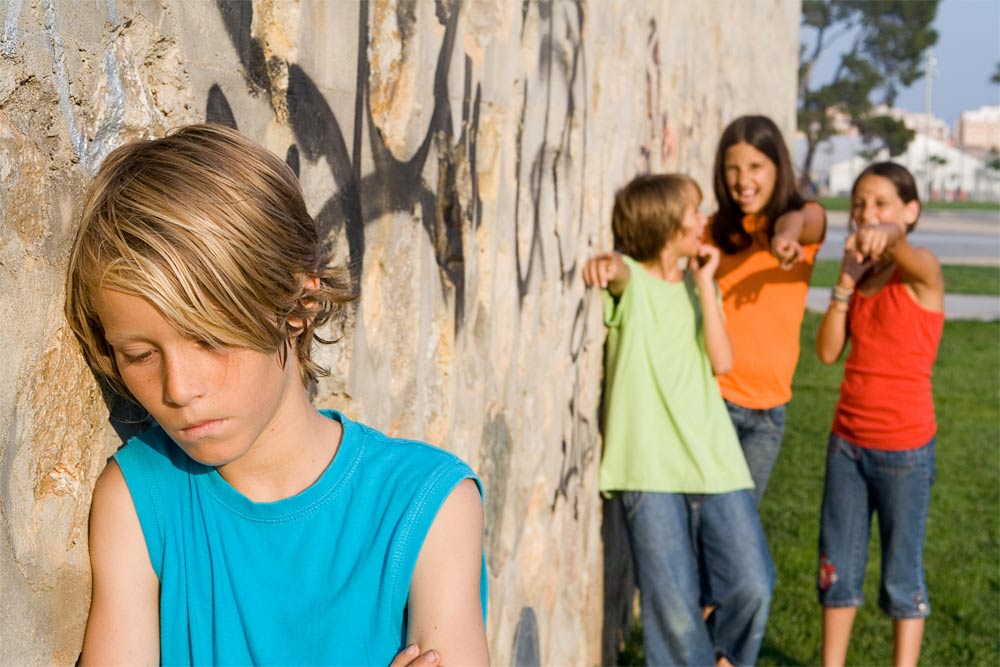The Pain of Bullying Lasts into Adulthood

Kids don't easily outgrow the pain of bullying, according to a new study that finds that people bullied as kids are less mentally healthy as adults.
The study is one of the first to establish long-term effects of childhood bullying, which is still often considered a typical part of growing up.
"To my surprise at least, there were some very strong long-term effects on their risk for depression, anxiety, suicidality, a whole host of outcomes that we know just wreak havoc on adult lives," said study researcher William Copeland, a clinical psychologist at Duke University Medical Center.
How bullying hurts
Previous studies have found that both bullies and their victims are at higher risk for mental health problems and other struggles in childhood. One study, presented in 2010 at the Annual Convention of the American Psychological Association, found that bullies were at higher risk of substance abuse, depression, anxiety and hostility than non-bullies.
For bully victims, being targeted can result in increased suicide risk, depression, poor school performance and low self-esteem. But most studies on the effects of bullying focus on the childhood period.
"The question for our study is what happens long-term, down the road, after they're no longer being bullied and after they're no longer children," Copeland told LiveScience. [10 Scientific Tips for Raising Happy Kids]
Sign up for the Live Science daily newsletter now
Get the world’s most fascinating discoveries delivered straight to your inbox.
Copeland and his colleagues used data from a study begun 20 years ago, which queried 1,420 children and their parents about general mental health beginning ate age 9, 11 or 13. The kids were assessed annually until age 16, and then they came back for follow-ups at ages 19, 21 and 25.
Before age 16, participants were asked whether they had been bullied or bullied others, how frequently, and where any bullying occurred, among other questions.
Using this data, the researchers divided the kids into four groups: kids uninvolved in bullying; pure victims who were bullied but did not bully others; pure bullies who were never victimized themselves; and "bully/victims," a group of kids who both bullied and were bullied.
Five percent of the kids, or 112, were bullies only, and 21.6 percent, or 335 kids, were pure victims. Another 4.5 percent were bully/victims. The rest were neither.
Long-term effects
The researchers then looked at the mental health outcomes of each group in young adulthood, controlling for childhood factors such as pre-existing mental health conditions, struggles with home life and childhood anxiety levels.
They found that any involvement in bullying boded poorly in adulthood. Pure bullies did not show problems with emotional functioning as adults, Copeland said, which is unsurprising given that they had all the power in their childhood relationships. But they did show increased risk of developing antisocial personality disorder. People with this disorder have little empathy and few scruples about manipulating others for their own gain. The disorder is linked with a greater risk of becoming a criminal. Most bullies did not go on to have the disorder, Copeland said, but they were more likely to develop it than other groups.
Pure victims, on the other hand, were at higher risk for depression, anxiety, panic attacks and agoraphobia than kids uninvolved in bullying, the researchers found. Worst off were the bully/victims, who were at higher risk of every depressive and anxiety disorder in the book. [5 Ways to Foster Self-Compassion in Your Child]
For example, pure victims were four times as likely to develop an anxiety disorder in adulthood compared with kids who were uninvolved in bullying. Bully/victims had a five-times greater risk of depression than uninvolved kids, as well as 10 times the likelihood of suicidal thoughts or actions and 15 times the likelihood of developing a panic disorder.
"By far, being a bully and a victim meant having the worst long-term outcomes," Copeland said.
Because they were able to take childhood mental health into account, the researchers are confident that the adult mental health struggles are an effect of the bullying, not pre-existing conditions that made them vulnerable to bullies in the first place.
While it's not yet clear why bullying might have such a long-term effect, it's possible that torment at school is not so dissimilar to maltreatment or abuse in the home, Copeland said. Kids spend a lot of time at school and surrounded by peers, he said, so it's not surprising that troubles there could have long-lasting consequences.
"More and more, I'm coming to the mindset that what happens to kids when they're with other kids, their peers, is as important, or maybe more important, than what happens at home," he said.
The next step, Copeland said, is to investigate what makes some bullied kids more resilient and able to bounce back in adulthood than others. The researchers report their results online today (Feb. 20) in the journal JAMA Psychiatry.
Follow Stephanie Pappas on Twitter @sipappas or LiveScience @livescience. We're also on Facebook & Google+.

Stephanie Pappas is a contributing writer for Live Science, covering topics ranging from geoscience to archaeology to the human brain and behavior. She was previously a senior writer for Live Science but is now a freelancer based in Denver, Colorado, and regularly contributes to Scientific American and The Monitor, the monthly magazine of the American Psychological Association. Stephanie received a bachelor's degree in psychology from the University of South Carolina and a graduate certificate in science communication from the University of California, Santa Cruz.









